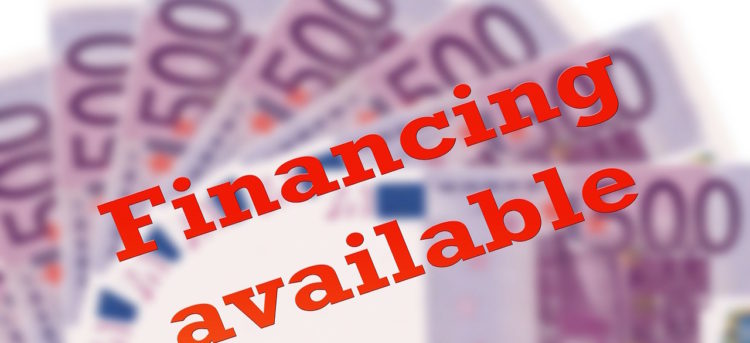LendingClub and OnDeck went IPO last month. At this pivotal time for alternative lending, we get a chance to interview Ethan Senturia, Co-Founder/CEO of non-bank business lender Dealstruck, who connects profitable, small- and medium-sized businesses with innovative credit solutions funded by individual and institutional accredited investors. Ethan shares his thoughts about the future of business lending and offers advice for business owners who are in need of funding in this ever-changing business lending environment.
1. What do you think of the small business lending environment in 2015?
I’m quite optimistic about the small business lending environment for the upcoming year. Although there are still grumblings about the sluggish recovery of the economy, job creation is increasing, unemployment is at 5-year lows, and the interest rate environment is still benign, so I think business owners will have the confidence and desire to pursue growth they may have previously forgone.
Moreover, banks have slowly been loosening their credit criteria, and rejection rates for SMBs are down in the low 70’s, as compared to high 80’s less than two years ago. While we don’t feel our (non-bank lending) market is threatened by banks, this does mean that the "Path to Bankable" is becoming a reality again, as creditworthy businesses that have built solid payment history with alternative lenders can reasonably expect to graduate to conventional financing.
2. What do you think of LendingClub/OnDeck IPO?
Seeing two fintech lending platforms go public within a week of each other makes it a very exciting time to be in alternative lending, especially in the SMB market. The IPOs provide credibility to the notion that non-bank lenders/platforms are here to stay and will present a very viable (and perhaps more likely) source of capital for consumers and SMBs than traditional depository institutions.
3. Do you think that banks’ role might change with this alternative lending frenzy and how?
I’m not sure that the role of banks will change any more than it already has in the immediate aftermath of these IPOs. There are certain types of loans that can be better handled by an alternative lender than by a bank–consumer debt consolidation and small business loans being the most salient examples–and my sense is that the trend away from banks for these particular assets will continue.
4. What is the biggest challenge for most alternative lenders?
At the moment, the biggest challenge is awareness. After all, the name itself–"alternative lender"–suggests that we are outside the mainstream and not the first stop for capital. "Non-bank" is probably a more accurate and less biased description of the types of companies that are emerging to provide capital where traditional financial institutions have underperformed. Getting the public to know that there are alternative sources of capital AND that these sources are stable and, many times, better than traditional sources of capital, is the key our industry continuing its rapid ascent.
5. How would you position Dealstruck to win in this competitive environment?
We’re focused on building unique loan products that are sold transparently and priced fairly, that position growing businesses to pursue a path to conventional financing. The right combination of service, product, and technology can transform borrowing into a positive experience that lets businesses and business owners achieve their full potential.
6. What will happen to non-bank business lending if another recession hits?
It depends. Some lenders who emerged in a benign rate and credit environment, and didn’t focus on building a strong credit culture will disappear. Similarly, folks without servicing expertise to workout their portfolio to minimize loss rates in times of stress will suffer. But, those lenders with sound underwriting, strong servicing expertise, and the ability to adjust their origination strategies in real-time will probably prove quite resilient. In fact, the Great Recession was a boon to some alternative lenders as banks pulled back aggressively. Those that do make it through a downturn will end up with lots of green field ahead.
7. What’s your advice for small business owners when shopping for a business loan?
Be Informed–By arming yourself with education about the options available, you’ll be able to sort fact from fiction when speaking with various lenders. If it sounds too good to be true, it probably is. (That’s exactly what we do at Nav!)
Be proactive–Pursuing financing before you absolutely need it will allow you to survey the landscape to find the right loan for your need.
Be patient–Some lenders employ high-pressure and/or deceptive sales tactics to try to get you to take a loan as fast as possible (i.e. before you get off the phone!). Taking a moment to digest information, do your own fact-checking, and talk to multiple lenders can save you from a financing decision that could be adverse to your business.
This article was originally written on January 17, 2015 and updated on November 3, 2016.



Have at it! We'd love to hear from you and encourage a lively discussion among our users. Please help us keep our site clean and protect yourself. Refrain from posting overtly promotional content, and avoid disclosing personal information such as bank account or phone numbers.
Reviews Disclosure: The responses below are not provided or commissioned by the credit card, financing and service companies that appear on this site. Responses have not been reviewed, approved or otherwise endorsed by the credit card, financing and service companies and it is not their responsibility to ensure all posts and/or questions are answered.